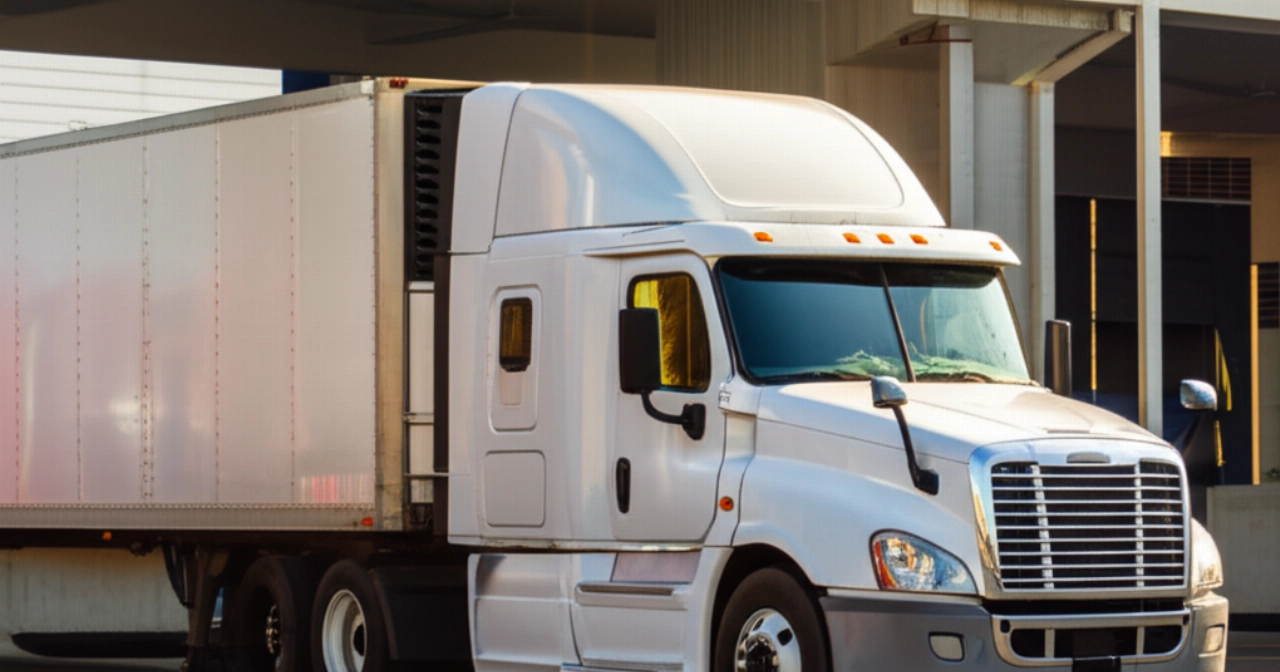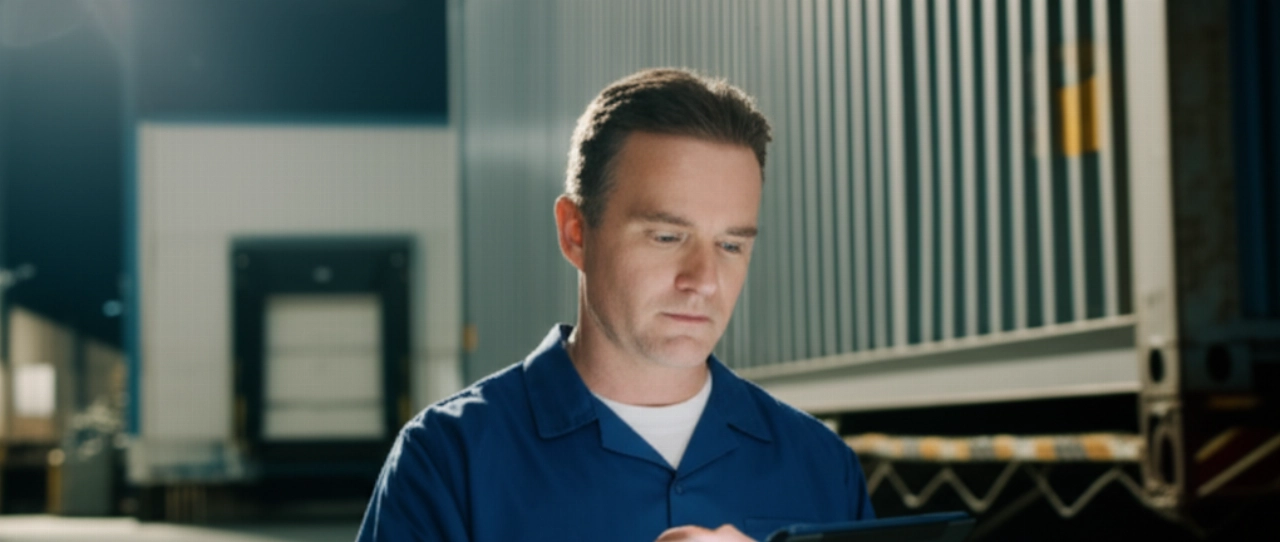Does your business depend on the freshness of the products you ship? Or perhaps you need to transport temperature-sensitive pharmaceuticals, and the mere thought of compromising their integrity keeps you awake at night?
Understanding the true **refrigerated transport cost** and finding a partner who guarantees perfect preservation of goods, avoiding unpleasant financial surprises or, worse, loss of the cargo, can seem like a labyrinth of regulations, technologies, and vague quotes.
At trasportomerci.net, we know that your goods are not just a simple package: they are the fruit of your labor, the foundation of your reputation, the guarantee of your customers' health. That's why, in this guide, we won't just give you numbers. We will provide you with a map to navigate the world of temperature-controlled transport, understand the real costs, and choose a partner you can blindly trust. Let's begin.

Beyond Delivery: Why Reliable Refrigerated Transport is an Investment, Not a Cost
When we talk about refrigerated transport, we are not simply moving an object from point A to point B. We are managing a true cold chain, a delicate and fundamental process that directly impacts the quality, safety, and regulatory compliance of your goods. Whether it's perishable food products, temperature-sensitive pharmaceuticals, flowers, or specific chemical products, any interruption or temperature variation can have disastrous consequences.
Imagine shipping a load of fine cheeses or a batch of vaccines. Non-compliant transport can mean:
- Total economic loss: Deteriorated and unsellable goods.
- Reputational damage: Dissatisfied customers, negative reviews, loss of trust.
- Legal and health risks: Violation of HACCP regulations for food or GMP (Good Manufacturing Practices) for pharmaceuticals, with possible severe penalties.
Therefore, a reliable refrigerated transport service is not an expense, but a strategic investment. It guarantees you peace of mind knowing that your goods will arrive at their destination in optimal condition, preserving their intrinsic value and your reputation. It is the foundation for building a solid and lasting business, where the quality of the delivery service is your competitive advantage.

The Transparent Quote Formula: The 7 Factors That Determine Your Refrigerated Transport Cost
The cost of refrigerated transport is influenced by several variables. Understanding these factors allows you to read a quote with greater awareness and avoid unpleasant surprises. Here are the main elements that determine your **refrigerated transport cost**:
1. Distance and Route
It seems obvious, but the length of the journey is the primary factor. It's not just about kilometers, but also the complexity of the route: remote areas, limited traffic zones (LTZ), the need for ferries or special passages can affect the final price.
2. Weight and Volume of Goods
The price is not based solely on the actual weight (kg), but also on the volume occupied by the goods inside the isothermal vehicle. This is the concept of volumetric weight: the space your goods "take up" in the truck. More space or weight means a higher cost. It is essential to declare precise dimensions and weight for an accurate quote.
3. Required Temperature Range
The exact temperature your goods require is crucial. There are different temperature classes, each with specific costs and technologies:
- Refrigerated (0°C to +4°C): For fresh products such as fruits, vegetables, dairy products, fresh meat.
- Frozen (-18°C to -25°C): For frozen foods, ice cream, some types of fish.
- Temperature Controlled (+15°C to +25°C): For pharmaceuticals, chocolate, some chemical products that must not undergo thermal fluctuations.
Maintaining extreme or very precise temperatures requires more sophisticated vehicles and control systems, influencing the price.
4. Shipping Urgency
Do you need a fast delivery? An express service or a dedicated transport (where the vehicle is used only for your goods) will have a higher cost compared to a refrigerated groupage service (where your goods travel with other loads sharing the same route and temperature).
5. Type of Goods and Specific Requirements
Food, pharmaceuticals, chemical products: each category has specific regulations and handling requirements. For example, the transport of certain chemical substances or pharmaceuticals may require additional certifications (such as ADR for dangerous goods) or particular safety procedures, which are reflected in the cost.
6. Additional Services Required
Do you want greater peace of mind? Services such as "all risks" insurance (which covers all types of damage), the use of a hydraulic tail lift for loading/unloading, porterage, or constant temperature monitoring with detailed reports, are options that add value and, consequently, affect the final price.
7. Documentation and Regulatory Compliance
The management of documentation (DDT, CMR, health certifications, ATP for vehicles) and the guarantee of full compliance with current regulations are an integral part of a professional service. A reliable partner takes care of all this, avoiding problems and delays.

The Trap of Saving at All Costs: The 3 Mistakes to Avoid When Choosing Refrigerated Transport
In an attempt to save money, many make mistakes that ultimately cost much more in terms of lost goods, compromised reputation, or penalties. Here are the pitfalls you absolutely must avoid:
1. Relying on Uncertified or Improvised Carriers
The market is full of "carriers" who offer rock-bottom prices but do not possess the necessary certifications (such as ATP for isothermal vehicles) or adequate equipment to maintain the cold chain. An unsuitable van or an outdated refrigeration system is a recipe for disaster. The risk is that your goods arrive deteriorated, compromising their integrity and your credibility.
2. Ignoring the Importance of Temperature Monitoring
It's not enough for a vehicle to be "refrigerated." It is essential that it is equipped with real-time temperature monitoring systems, with constant data recording. Without this technology, you have no proof that the temperature was maintained consistently throughout the journey. In case of disputes or inspections, you would be defenseless. A true professional will provide you with detailed and accessible reports.
3. Falling into the Trap of "Too Good to Be True" Quotes
An excessively low price should always raise a red flag. Often, these quotes hide undeclared additional costs (fuel surcharges, LTZ costs, demurrage, insufficient insurance) that will inflate the final price, turning an apparent saving into an unpleasant surprise. A transparent quote is detailed and includes all cost items.
The Difference Between a Carrier and a Logistics Partner: The TrasportoMerci.net Method for Cold Chain
At trasportomerci.net, we are not just simple carriers. We position ourselves as your trusted logistics partner, specializing in temperature-controlled transport. Our method is based on fundamental pillars that guarantee you peace of mind and results:
- Certified and State-of-the-Art Fleet: We only use latest-generation isothermal vehicles, all ATP certified and equipped with high-efficiency refrigeration and freezing systems, constantly maintained and controlled.
- Real-Time Monitoring: Every shipment is tracked and monitored 24/7. You can check the location of your goods and the internal temperature of the cargo compartment at any time, with detailed reports available upon request.
- Expertise and Compliance: Our team is trained on the latest regulations concerning temperature-controlled transport (HACCP, ATP, ADR if applicable). We manage all necessary documentation for you, ensuring full compliance and zero worries.
- Tailored Solutions: Whether you need a single refrigerated pallet or continuous management of your cold chain logistics, we offer customized solutions, optimizing time and costs for you, both for full truckloads (FTL) and for refrigerated groupage.
- Insurance and Security: Your goods are our responsibility. In addition to standard carrier insurance, we offer additional coverage options to protect your investment from all risks.
With trasportomerci.net, your fresh or temperature-sensitive goods are in safe hands, from pickup to delivery.
Frequently Asked Questions about Refrigerated Transport Cost
How long does it take for refrigerated goods delivery?
Delivery times for refrigerated goods depend on the distance, destination, and type of service chosen (standard, express, or dedicated). We will provide you with a precise and reliable estimate at the time of the quote, based on your specific needs.
Are my goods insured during refrigerated transport?
Yes, every shipment is covered by carrier insurance, as required by law. For greater peace of mind, we also offer the option of taking out "all risks" insurance policies that cover any type of damage or loss, ensuring maximum protection for your valuable goods.
How is the cold chain guaranteed during transport?
We guarantee the cold chain by using ATP certified vehicles (Agreement on the International Carriage of Perishable Foodstuffs and on the Special Equipment to be Used for such Carriage), equipped with state-of-the-art refrigeration systems and real-time temperature monitoring devices. These systems send alerts in case of anomalies, allowing us to intervene immediately.
What documents are required for a refrigerated shipment?
In addition to standard transport documents such as the Transport Document (DDT) or the International Consignment Note (CMR), specific certifications may be required for the type of goods (e.g., health certificates for food or authorizations for pharmaceuticals) or for the vehicle (ATP certificate). Our team will guide you step-by-step in preparing all necessary documentation.
Can I track my temperature-controlled shipment?
Absolutely. We will provide you with a unique tracking code that will allow you to monitor the status of your shipment and, in many cases, also the temperature of the cargo compartment, directly online, at any time during the journey.
Your Goods Deserve the Best: Ask for a Clear, No-Obligation Quote
Now you know exactly what to look for when choosing a **refrigerated transport cost** service that guarantees safety, compliance, and transparency, without anxiety or surprises.
Perhaps you think that a professional and certified service is too expensive or complicated to organize. In reality, the biggest cost is the loss of goods quality, penalties for non-compliance, or, worse, damage to your reputation. A reliable partner saves you time, money, and stress, transforming cold chain logistics into a strength for your business.
Stop wasting time comparing incomprehensible quotes or risking the freshness of your products. Your goods deserve a safe journey, and you deserve peace of mind. The first step costs nothing: it's a consultation on your specific refrigerated transport needs. Click here, describe what you need to ship (food, pharmaceuticals, other?) and receive a clear, detailed, and no-obligation quote. Discover the best solution for you now.
Now that you know everything about refrigerated transport, also discover how to optimize shipping costs with groupage or learn more about insurance guarantees for freight transport.